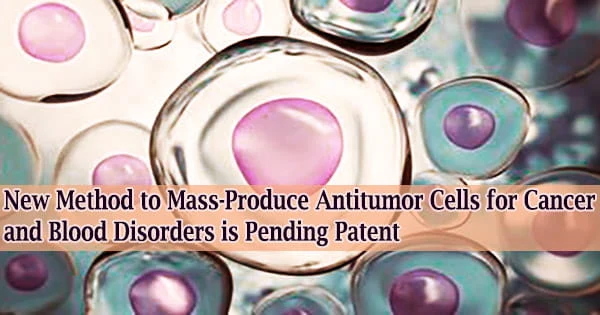According to a report published in the peer-reviewed journal Cell Reports, a Purdue University chemical engineer has improved upon conventional procedures to create off-the-shelf human immune cells that exhibit potent anticancer activity.
According to Xiaoping Bao, an assistant professor at Purdue University’s Davidson School of Chemical Engineering, effective treatments for blood disorders and cancer include engraftable hematopoietic stem cells and CAR-neutrophils, also known as chimeric antigen receptor neutrophils.
The most prevalent form of white blood cell is the neutrophil, which may easily penetrate physiological barriers to infiltrate solid malignancies. HSCs, which are specialized progenitor cells will replenish throughout life all blood lineages, including neutrophils.
“These cells are not readily available for broad clinical or research use because of the difficulty to expand ex vivo to a sufficient number required for infusion after isolation from donors,” Bao said. “Primary neutrophils especially are resistant to genetic modification and have a short half-life.”
Human pluripotent stem cells (hPSCs), which have the capacity to self-renew and give rise to any type of human cell, can be used by Bao to create CAR-neutrophils in large quantities.
The chimeric antigen receptor constructs were designed to express on the surface of the hPSCs before they were converted using a brand-new, chemically specified process into functional CAR-neutrophils.
We developed a robust protocol for massive production of de novo neutrophils from human pluripotent stem cells. These hPSC-derived neutrophils displayed superior and specific antitumor activities against glioblastoma after engineering with chimeric antigen receptors.
Xiaoping Bao
The technique was developed in cooperation with Xiaojun Lian at Pennsylvania State University, Qing Deng at Purdue University’s Department of Biological Sciences, and the now-deceased Hal E. Broxmeyer at Indiana University School of Medicine.
“We developed a robust protocol for massive production of de novo neutrophils from human pluripotent stem cells,” Bao said. “These hPSC-derived neutrophils displayed superior and specific antitumor activities against glioblastoma after engineering with chimeric antigen receptors.”
Bao revealed the invention to the Purdue Research Foundation Office of Technology Commercialization, which then filed an application for a global patent through the World Intellectual Property Organization’s Patent Cooperation Treaty system. A bio sciences company with its headquarters in Indiana has been granted an option on the invention.
“We will also work with Dr. Timothy Bentley, professor of neurology and neurosurgery, and his team at the Purdue College of Veterinary Medicine to run clinical trials in pet dogs with spontaneous glioma,” Bao said.
The Purdue Center for Cancer Research, the Showalter Research Trust, the Davidson School of Chemical Engineering, the College of Engineering Startup Funds, and federal grants from the National Science Foundation and National Institute of General Medical Sciences all contributed to this research project’s partial funding.





